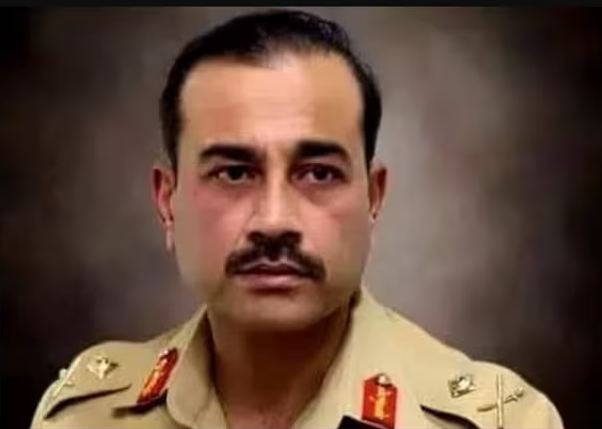Schism in the Pakistani Army is a new cause of conflict for India
For the first time since the creation of Pakistan three-quarters of a century ago, India is struggling with its interactions – or lack thereof, as some may put it – with its western neighbour. The administration is currently unwilling to discuss this dilemma in public: First of all, because the sport is still developing. Second, any indication that Indian partisans are interested in this development will further exacerbate the situation south of the border.
At the Army General Headquarters (GHQ) in Rawalpindi, the impossible is taking place: the Pakistan Army’s political allegiances are split. Politicians in Pakistan have been torn in their allegiances to the Army GHQ for the better part of 76 years. And the GHQ always chose and placed its preferred candidate for office, generally to save a Martial Law Administrator turned President from the firing line. If the continuing struggle for power in Pakistan’s streets comes to a logical end later this year, these positions are likely to be reversed. If Nawaz Sharif returns to Pakistan from performing Umrah in Saudi Arabia rather than continuing his self-imposed exile in London, it might happen sooner. If Sharif is successful in reestablishing some sort of normalcy in the lives of the common people in his country, even while holding no formal office, or if simmering tensions in the Army are covered up, it might not happen until next year.
Split Loyalties
General Asim Munir Ahmed Shah, the new head of the army, would do all it takes to keep Imran Khan from winning re-election to the city council in Islamabad. Before he had served even a full year as spymaster, Khan fired General Munir, as he is widely known, and replaced him as Inter-Services Intelligence (ISI) Chief with his most devoted General Faiz Hameed, who is now retired. In Pakistan, the Chief of the (ISI) is constantly equipped with mysterious tricks that less cunning and scheming Chiefs of Army Staff must deal with. Despite being retired, the Army GHQ has a great deal of loyalty for Faiz, as he is best known.
After all, in his capacity as ISI Chief, he virtually hand-picked and installed members of the new Taliban leadership in Kabul that September after regaining control of Afghanistan for Pakistan on India’s Independence Day in 2021 without firing a shot. Since his retirement, Faiz has assisted Khan in growing his populist mass movement in much the same way that he is rumoured to have secretly assisted the Pakistan Tehreek-e-Insaf (PTI) leader in growing his movement to unseat Sharif as Prime Minister following the infamous 2016 Panama Papers leak on illicit foreign assets owned by politicians. Munir has been extremely alarmed by Faiz’s actions because the former has a following among the ranks of the Army. The Chief is no longer able to keep the Pakistan Army’s uniformed, regimented environment.
The retired Army Chief Qamar Javed Bajwa is a second general who has turned into a backstage player. Since Khan had mostly turned into an insurgent against Pakistan’s financial backers in Washington, Bajwa’s role in the regime transition in Islamabad last year has been circumstantially accepted, as was always suspected. Bajwa is known to have maintained frequent touch with Nawaz Sharif in London after Shehbaz Sharif succeeded Khan.
Arrogant Protector
The hitherto unheard-of intrigues within the Army—which were always decisively and swiftly suppressed before they attracted significant attention—do not augur well for India or the rest of the globe. Since General Ayub Khan, a self-declared Field Marshal, seized power in 1965, 11 years after Pakistan was founded, the only stable institution in that nation has been the Army, which the Supreme Court has defended under the “Doctrine of Necessity.” Since every other institution in Pakistan has been systematically destroyed, India cannot communicate with it. Even if successive White House administrations seem to favour democracy in Islamabad, the same holds true for Washington.
The majority of Pakistan’s politicians, including Benazir Bhutto and Nawaz Sharif, had grown up under the Army’s watchful eye as the haughty defender of that nation’s ultimate self-interest through gradual, trial by fire, installation in office and also removal from office. Khan, who has only held office once, has not yet attained that position. American Secretary of State Hillary Clinton is credited with saying: “You cannot keep snakes in your backyard and expect them to merely bite your neighbours. It is like the old story. Eventually, whomever owns the snakes in the backyard will turn on them.Khan, in contrast to other Prime Ministers trained by the Army GHQ, has not yet absorbed that lesson. If not, he wouldn’t have made the terrible error of reaching a peace agreement with the Tehreek-e-Taliban Pakistan (TTP). When Khan resigned as prime minister and Faiz stepped down as head of the ISI, that precarious truce came to an end. Since then, the figurative snakes have been biting Pakistanis.
However, the fanciful notion of a deal with the TTP enjoys considerable support inside the Army, and this school is now pitted against Bajwa’s proposals for accommodation with India and US engagement. This group includes Nawaz Sharif and Munir. There is a good chance that Pakistan may break apart like Yugoslavia if these disagreements are not resolved soon and the Army can no longer serve as the glue keeping the nation together. This is bad news for everyone, least of all for India’s neighbour Pakistan’s hidden arsenals of nuclear weapons.



